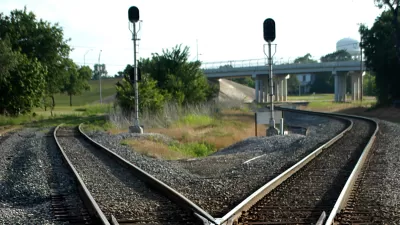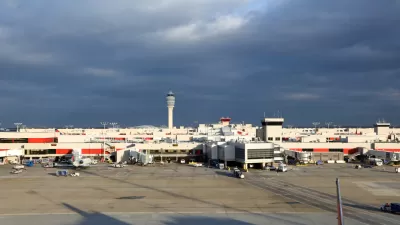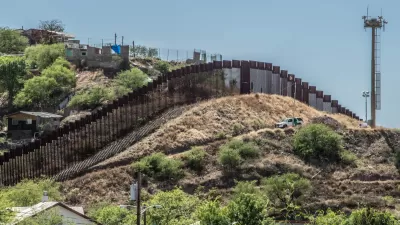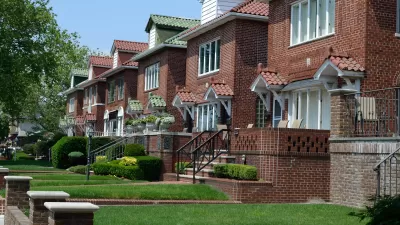President Trump's proposed infrastructure plans intends to shift ownership of much of America's infrastructure into private hands. Rebecca Burns argues that this approach will benefit the country's richest at the expense of the rest of the country.

Many have worried about America’s loss of strength in building infrastructure (link) and have concerns that the country's infrastructure costs continue to ratchet up out of proportion with other nations. In proposing a great expansion of the country's infrastructure through loans to private companies, the Trump Administration has what it hopes is a solution to both problems. "Trump and Bannon’s apparent rejection of neoliberal orthodoxies, including fiscal austerity and free trade, inspired hope that progressives might actually be able to negotiate with Trump on a small number of economic issues—if they could avoid collaborating in an otherwise racist, reactionary agenda," Rebecca Burns writes for In These Times.
The idea of bringing more private ownership to the U.S. infrastructure is not new and has been forwarded by some in the Democratic Party. But the Trump Administration seems poised to expand beyond areas explored in the past. "The President announced a 'great new era in American aviation,' meaning he was asking Congress to privatize the air-traffic control system," Burns writes.
Who is pushing to take the job of upgrading infrastructure out of government hands? Lobbyists. "Among the industry groups that have lobbied the administration and Congress on an infrastructure overhaul so far this year, according to federal lobbying disclosures, are BlackRock, the world’s largest investment management company; the Securities Industry and Financial Markets Association, a Wall Street trade group; American Water, a private water company; two private tolling companies; and free-market proselytizer Heritage Action for America," Burns writes. This boon to Wall Street would make the building of bridges no cheaper and limit the power of the users of these bridges to have a say over them.
FULL STORY: A New Deal for Wall Street

Alabama: Trump Terminates Settlements for Black Communities Harmed By Raw Sewage
Trump deemed the landmark civil rights agreement “illegal DEI and environmental justice policy.”

Planetizen Federal Action Tracker
A weekly monitor of how Trump’s orders and actions are impacting planners and planning in America.

The 120 Year Old Tiny Home Villages That Sheltered San Francisco’s Earthquake Refugees
More than a century ago, San Francisco mobilized to house thousands of residents displaced by the 1906 earthquake. Could their strategy offer a model for the present?

Ken Jennings Launches Transit Web Series
The Jeopardy champ wants you to ride public transit.

BLM To Rescind Public Lands Rule
The change will downgrade conservation, once again putting federal land at risk for mining and other extractive uses.

Indy Neighborhood Group Builds Temporary Multi-Use Path
Community members, aided in part by funding from the city, repurposed a vehicle lane to create a protected bike and pedestrian path for the summer season.
Urban Design for Planners 1: Software Tools
This six-course series explores essential urban design concepts using open source software and equips planners with the tools they need to participate fully in the urban design process.
Planning for Universal Design
Learn the tools for implementing Universal Design in planning regulations.
Clanton & Associates, Inc.
Jessamine County Fiscal Court
Institute for Housing and Urban Development Studies (IHS)
City of Grandview
Harvard GSD Executive Education
Toledo-Lucas County Plan Commissions
Salt Lake City
NYU Wagner Graduate School of Public Service





























